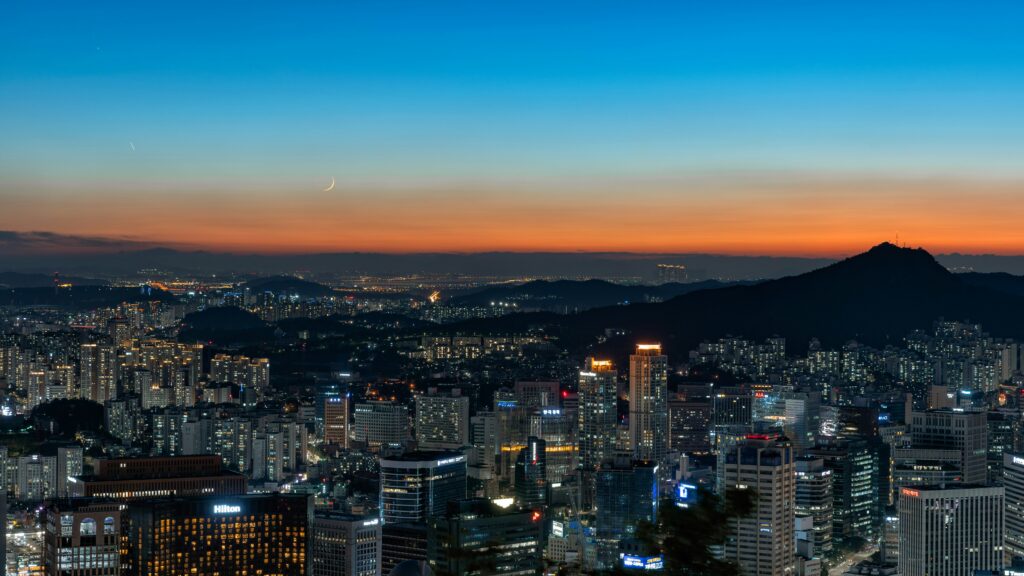President Yoon Suk-yeol’s declaration of martial law on Tuesday evening has stirred intense debate within South Korea and beyond. Framed as a measure to protect the nation’s democracy and maintain stability, the decision arises from escalating domestic political conflicts and worsening relations with North Korea. While the government asserts its necessity, critics view it as a risky and controversial move with potentially far-reaching consequences.
Domestic Political Standoff Sparks Martial Law
The immediate catalyst for the declaration was a prolonged political impasse between Yoon’s ruling People Power Party (PPP) and the opposition Democratic Party (DP). The DP, which holds a parliamentary majority, has blocked key government measures, including the national budget for the coming year. Additionally, they have called for investigations into corruption allegations involving President Yoon’s close associates.
In his announcement, Yoon accused opposition lawmakers of undermining national stability and aligning with “pro-North Korean elements.” He claimed martial law was essential to restore governmental functionality and safeguard South Korea’s liberal democratic order, which he argued was under direct threat from internal dissent.
Rising Regional Tensions with North Korea
The declaration also comes against the backdrop of escalating tensions with North Korea. Relations between the two nations, already fraught since the 1953 armistice, have deteriorated significantly in recent months. North Korea has ramped up its military activities, including missile launches and infrastructure destruction, while officially labeling South Korea a hostile state.
Further compounding the situation, North Korea deployed troops to Ukraine in support of Russia, a move interpreted as an effort to gain combat experience. Simultaneously, South Korea, under Yoon’s leadership, resumed joint military exercises with the United States, which had been suspended under former President Moon Jae-in. North Korea views these exercises as provocations, escalating tensions on the peninsula.
Measures Implemented Under Martial Law
Although the full scope of martial law remains unclear, reports indicate sweeping restrictions have been imposed. Political activities, including parliamentary sessions, have been suspended, and the military has cordoned off the National Assembly, effectively blocking a scheduled special session. Public protests, strikes, and demonstrations have been banned, while media outlets are subject to strict oversight. Medical personnel have also been ordered to prepare for potential emergencies within 48 hours.
President Yoon justified these measures as necessary to curb “social unrest” and ensure the government can function amid growing internal and external threats.
Public and Political Reactions
The martial law announcement has provoked sharp criticism across the political spectrum. Opposition leader Lee Jae-Myung of the Democratic Party called the decision unconstitutional, warning that it grants the military undue control over civilian governance. He also expressed concern that lawmakers could face arrests under the expanded powers of martial law.
Surprisingly, dissent has also emerged from within Yoon’s own PPP. Some party leaders criticized the declaration, arguing that it could deepen the political crisis rather than resolve it. The controversy has added to the sense of political uncertainty engulfing the nation.
Economic Implications and Stabilization Efforts
The declaration of martial law has also shaken South Korea’s financial markets. In response, the central bank pledged to take measures to stabilize the economy, and the finance ministry convened an emergency meeting with business leaders to assess the situation. Despite the turmoil, local reports indicate that the stock market will continue to operate as normal.
Global Implications and Regional Concerns
International observers have voiced concerns that the declaration could heighten tensions on the Korean Peninsula. With North Korea already adopting a hostile stance, the imposition of martial law may further complicate inter-Korean relations and draw increased scrutiny from global powers.
Conclusion
President Yoon’s decision to impose martial law highlights the gravity of South Korea’s current challenges. Faced with a domestic political deadlock and growing instability on the Korean Peninsula, the government has taken a drastic step to assert control. However, the move has intensified internal opposition, raised international concerns, and introduced significant uncertainty about the nation’s democratic future. As South Korea navigates this critical moment, the long-term implications of martial law remain unclear but undeniably significant.
